Through elections, voters determine who represents them in parliament. The rules according to which elections are held, how votes are turned into mandates and who organises their implementation are therefore essential for the quality of democratic representation. We are supporting the reform process surrounding the Bundestag electoral law with our expertise and are also conducting research into questions of electoral organisation and the associated trust in elections.
For questions about elections and electoral law, please contact Daniel Hellmann at hellmann@iparl.de.

What will happen after the early general election and what can we expect in the new election period in the party competition? Danny Schindler spoke about these questions with the morning programme of SWR Kultur.

The Bundestag elections on 23 February will be observed by an OSCE/ODIHR team of experts. In this context, discussions will also be held with experts from academia and civil society. Danny Schindler and Daniel Hellmann gave their assessments of the electoral reform, the scrutiny system and the general organisation of the election and discussed possible suggestions for improvement with the OSCE/ODIHR team of experts.
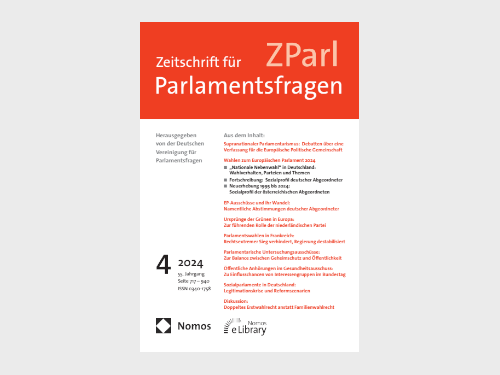
After the far-right Rassemblement National emerged as the clear winner of the election for the European Parliament on 9 June 2024, President Emmanuel Macron dissolved the National Assembly. Anastasia Pyschny and Calixte Bloquet show that the outcome of the second round of voting has far-reaching consequences for the French political system.
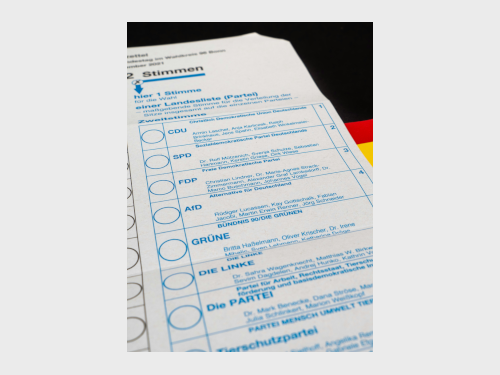
When voters cast their votes nationwide on 23 February, they will do so on ballot papers on which they are asked to tick candidates and party lists of their choice. It may seem trivial to ask how you actually get on the ballot paper. The simple answer: you stand as a candidate. But how does this actually work and who decides who is allowed to stand and who is not? Daniel Hellmann answers these questions on the pw-portal.

Following the break-up of the governing coalition, an early election to the German Bundestag will take place on 23 February 2025. Daniel Hellmann explains in the podcast "What's going on? On politics and society" by the Brandenburg State Centre for Political Education, Daniel Hellmann explains the challenges associated with the early election and the consequences of the electoral law reform of 2023 for the Bundestag election and the composition of the future Bundestag.
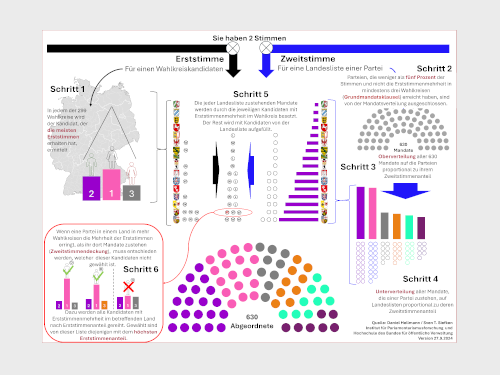
The Bundestag will be elected next year. For the first time, the electoral law reform adopted in the last electoral term will be applied, which will prevent overhang mandates in future. Sven T. Siefken and Daniel Hellmann explain how the distribution of mandates works in an explanatory video produced in cooperation with the Federal University of Applied Sciences.
Sign up to receive updates, promotions, and sneak peaks of upcoming products. Plus 20% off your next order.